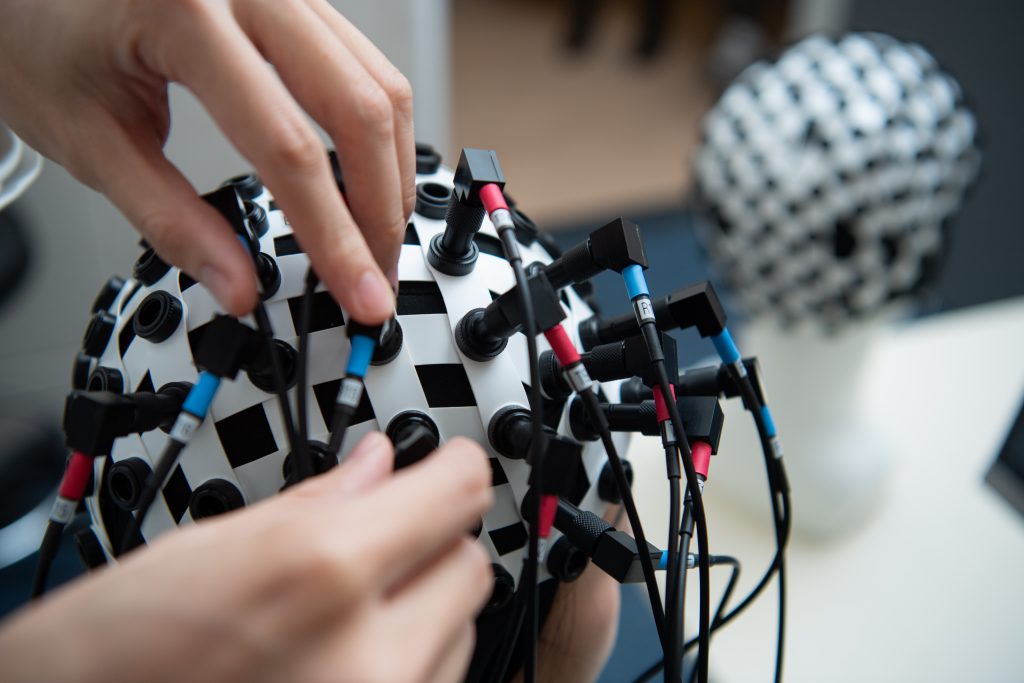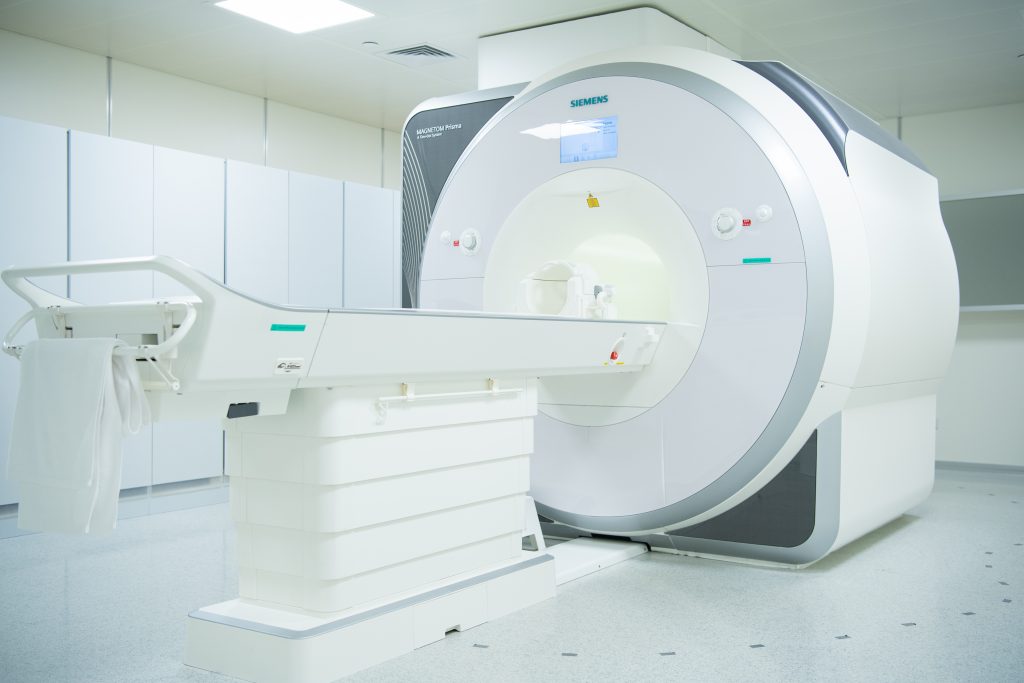Doctor of Philosophy in Brain and Cognitive Sciences
哲學博士學位(腦與認知科學)
*The programme is planned to be launched in academic year 2025/2026, and will come into operation upon publication in the Official Gazette of the Macao SAR.
The Doctor of Philosophy in Brain and Cognitive Sciences Programme aims to help students to gain advanced interdisciplinary knowledge that integrates computational and neural sciences for the study of perception, cognition such as decision making and linguistics, brain health, and brain-like intelligence.
The philosophy of this programme lies at the intersection of cognitive psychology, computer science, and neuroscience, bringing these fields together to investigate the activities of the interdisciplinary fields, including decision making and addiction, multi-linguistics, life span development, and brain disorders. Therefore, we prepare our graduates to be at the forefront of knowledge creation in one of the most exciting fields of our time, at the confluence of psychology, biology like cellular and molecular neuroscience, artificial intelligence and brain science, helping them to develop advanced research skills in neuroimaging, cognitive neuroscience and brain disorders.
| Courses | Type | Total Lecture Hours | Credits |
| CCBS8000 Research Ethics 研究倫理 |
Compulsory | — | –* |
| CCBS8001 Cognition and Brain Sciences 認知與腦科學 |
Compulsory | 45 | 3 |
| CCBS8002 Neuroscience Experimental Methodology 神經科學實驗方法學 |
Compulsory | 45 | 3 |
| CCBS8003 Statistics and Signal Processing for Neuroscience 神經科學中的統計與訊號處理 |
Compulsory | 45 | 3 |
| CCBS8999 Doctoral Thesis 博士論文 |
Compulsory | — | 18 |
| Students are required to take 1 course from the following required elective courses to obtain 3 credits: | |||
| CCBS8004 Neuroscience of Wellbeing 健康神經科學 |
Required Elective | 45 | 3 |
| CCBS8005 Professional Development 專業發展 |
Required Elective | 45 | 3 |
| CCBS8006 Seminar on Cognitive Neuroscience and Brain-Inspired Artificial Intelligence 認知神經科學與類腦人工智能專題研討 |
Required Elective | 45 | 3 |
| Grand Total | 30 | ||
*This is an online course bearing no lecture hour and credit.
- Application Period: 1/8/2025 to 13/3/2026 (Apply online)
- Applicant must possess either a bachelor or master’s degree in the following disciplines or fields:
– Cognitive Neuroscience
– Psychology
– Biomedical Engineering / Biomedical Sciences
– Clinical Medicine / Radiology / Psychiatry
- Follow the general admission rules and requirements of the University.
- Please visit Graduate School for information about admission and application procedure.
With education in behavioral experimentation, advanced data analysis, computer programming and computational modeling, neuroimaging and brain intervention tools, graduates of PhD in Brain and Cognitive Sciences programme will be well qualified for careers in the following industries or areas:
- Academia
- Cognitive neuroscience
- Brain-Inspired AI
- Data science
- Human computer interaction and human factors engineering
- Healthcare
- Clinical research
- Research and development in biotechnology
- English language proficiency requirement
- Applicants who received their Bachelor’s/Master’s degree from a university where the medium of instruction was not English are required to provide any of the following as proof of English proficiency:
- Obtained a TOEFL* score of 550 (paper-based examination) / 80 (Internet-based examination) or above or,
- An IELTS* overall score of 6.0 or above with no sub-score lower than 5.5 or,
- College English Test (CET) score of 430 or above.
*Note: TOEFL and IELTS scores are valid for two years from the test date.
- Applicants who received their Bachelor’s/Master’s degree from a university where the medium of instruction was not English are required to provide any of the following as proof of English proficiency:
- Tuition fee
- PhD Funding
Upon completion of the core courses and required elective courses of the programme curriculum of PhD in Brain and Cognitive Sciences, students will be able to:
- Identify advanced knowledge of the brain at multiple levels of function, from cells to cognition and behaviour using approaches ranging from molecular, cellular and systems level investigations to brain imaging.
- Independently carry out interdisciplinary research projects with neuroimaging and brain intervention technology and expertise at the very forefront of brain science research.
- Display independent thinking, creativity, and problem-solving skills in addressing research questions and advancing scientific understanding in the field of brain and cognitive sciences.
- Apply the comprehensive knowledge and scientific research skills in pursuing a career in academia and the industry.




